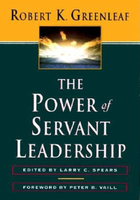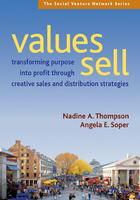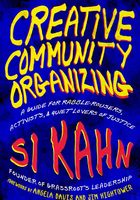THE WALL
The First approached the Elephant,
And happening to fall
Against his broad and sturdy side,
At once began to bawl:
"God bless me! but the Elephant
Is very like a wall!"
—From "The Blind Men and the
Elephant," by John Godfrey Saxe
FESTINA LENTE—HASTEN SLOWLY
There's always someone at the start of every project. Someone's not ready, while everyone else strains at the reins. When we set to work, this one drags his feet. He complains about irrelevant things and seems not to be hastening slowly or otherwise. He's a pain in the butt.
Most ignore him and get on with their real work. Some try to push him off his dime. Sometimes they succeed in getting him moving with the others, but he engages hesitantly, as if he has left something important behind. Later he will seem to have forgotten about whatever felt so very important at the beginning, but the memory of it will occasionally return to inconvenience him, and his reaction then will inconvenience those around him.
We might be taught to hasten slowly at the beginning, to cautiously consider before proceeding, but most of us quickly figure out how to ditch any roadblock between us and full speed ahead, leaving the careful considerer behind. We take a deft sidestep or an innocent about-face, but we usually avoid the wall that so evidently blocks progress.
A wall marks the start of every project. Pay close attention, look carefully, or you'll miss it. After you've seen it, you might wish you could make it disappear. This wall can become a useful feature of your project, but it always first appears as an inconveniencing barrier to meaningful progress.
We are taught to hasten slowly for one very good reason—not to encumber progress, but to acknowledge and address one insignificant-seeming issue that later might seem anything but insignificant. We are not simply milling around as we struggle to make our first steps more deliberate, we are making our purpose explicit. Without an explicit purpose, project work tends to shift from raging enthusiasm into utter meaningless. Projects make this shift so imperceptibly and so inexorably that we are utterly disabled from slowing down to discover our purpose once we achieve full momentum. We will have one devil of a time recapturing that moment should we manage to hasten quickly through it.
The first time I encountered this wall, I sidestepped it and thought I was getting away with something. The second time I didn't even see it. I spent many years looking right through these walls just as if they were never there. It took another, wiser person to reacquaint me with my inconvenience. I have no end of gratitude for this introduction.
Where should a project start? Some say projects should start by gathering requirements. Others argue for setting objectives. Still others want boundaries defined. Most are satisfied just to get working on something, anything. Regardless of where they are supposed to start, projects start where they start. Most begin by initiating activity that will add no lasting value to anything, just so they can get moving.
Our training tells us to hasten slowly at the beginning. But something insidious happens to all who hasten. Hastening at the beginning will tempt us to try to avoid the initiating wall. And no one successfully avoids this wall.
Responding to an urgency by hastening creates the key failure mode for projects. Hastening makes us forget something that's essential for meaningful success. We'll discover what we've overlooked during our project's darkest days, when we can't get a break. When our approach betrays us and our objectives become absolutely unachievable, our wall will reappear. If we avoided it at the beginning, this wall will stop us cold then.
MEETING MY WALL (AGAIN)
Ireported for my first day's work as a consultant ten years ago. A small training and consulting company had hired me away from a secure job in a large insurance company. I didn't know I was about to meet my wall.
I carefully prepared for that first morning of my new life. Up at 4 a.m., I worked out in both the gym and the pool. I ate a large breakfast. I chose a dark blue blazer to wear over a heavily starched light blue oxford cloth shirt. I decided against wearing the tie that I wouldn't have dared arriving without at my old job, and felt half-naked and a little decadent. I left the hotel an hour early, arriving at the office long before the office manager would show up to unlock the door. I must have looked anything but suitably clad in my polished penny loafers as I nervously paced the quarter block on either side of that suburban Silicon Valley office building. I was scared spitless and swooning with anticipation.
How could my background have landed me in this place? My résumé was nothing to write home about. I was not a scholar or a member of a prestigious society. My interview two weeks earlier had gone well. Each partner took time to share his or her stories. I showed well. A partner meeting, where I was an agenda item, ran into dinner, at which they asked me to join the firm. I accepted (details like salary and responsibilities to be fleshed out later) before slipping out of the restaurant and catching the last plane north for my final two weeks at the insurance company.
Observing was my primary qualification for this job. In my most desperate moments working at the insurance company, when abandoning my career as a songwriter and "getting a real job" seemed to have been an act of self-destruction, I found myself writing. I wrote about what I observed on my projects. I even wrote about the litter I passed on my walk to work. I used these observations, whatever they were, as a means of expressing myself. My powers of observation have always been a part of my life. They first led me to become a songwriter. Now my observing, rather than my knowing, had qualified me for this opportunity.
I had first connected with this consulting firm just before Thanksgiving the year before, when I audited the firm's project management workshop with the idea of bringing it into the insurance company for my staff of project managers. The trainer and I discovered a deep connection between us during the class, where we caught ourselves finishing each other's sentences, and as I left the workshop, I asked her if she would be interested in reviewing some of my writing. She was interested, and just after Christmas, having finished her review, she invited me down for an interview with the other partners. Now, the last week of the following February, I was coming on board and anxious to prove myself.
I'll never forget that early half-hour of pacing around the office. The California air was unseasonably warm for a guy used to Oregon Februarys. The sun felt moist and hot through the light haze. Alien-looking lilies bloomed from beds of creeping jasmine. Larry Howard, a founder of the firm, had volunteered to show me the ropes. His arrival interrupted my pacing. He proposed breakfast. We small-talked our way a short couple of blocks to a little café. He ordered an enormous meal, and as my earlier breakfast weighed heavily, I ordered an English muffin and some dishwater decaf.
Our conversation remained small throughout the meal. Then, as Larry swept up an errant bit of egg yolk with his last toast point, we finally began talking about where I would start.
I asked, "So, Larry, what do you want me to do today?"
Larry looked up at me with the slightest smile in one corner of his mouth. "That's not the right question. We don't do business like that," he replied. The look in my eyes caused a deeper glee to erupt on Larry's face. "Yes," he continued, "there's a more important question than what I or the firm wants you to do. Listen carefully," he said, his voice dropping to a conspiratorial whisper, "this is the essential question for you this morning. The question is, ‘What do you want?'"
Larry was introducing me to my wall. I'm sure I looked stunned by his question. I felt dizzy. I felt trapped. I slipped into an embarrassed, mind-racing verbal tap dance. "What do I ... want?" I repeated Larry's question as if I hadn't heard or completely understood it.
"Yes," he repeated, "what is it that you want?"
Mistaking Larry for my Master and unconsciously shifting into my well-practiced Slave vocabulary, I slipped in a few of the loftier-sounding objectives from my last performance appraisal at the insurance company, but Larry would have none of my content-free bureaucratese.
He deftly countered, remaining powerful behind the shield of his damned question. "So, what did you say that you want?"
I listed the usual requirements, but they sounded strangely flat drifting across that breakfast table. I explained that I wanted to learn how to consult in high-technology companies. I would like to teach. I wanted to write a book. None of these comments satisfied Larry. He insisted that I become clear about my purpose for being in the firm. I would use the job as a medium, not as an end in itself, he explained, or there would be no work for me. I had to answer his question before he would assign me any meaningful responsibilities.
I could feel the air leaking out of the brightly colored aspiration that had lifted me out of the confining insurance company and into this job's seemingly unlimited potential. The initiation here was rough! Less than an hour into my employment and I already had to know what I wanted? I had to be clear about my personal priorities? I had to share these priorities with my partners? Larry was telling me that I'd have to get and stay real if I was going to succeed there. Gulp! I wanted this wall to disappear. I wanted my life to become simple again, like it had been just an hour before.
The idea of disclosing what I wanted terrified me after so many years of hiding in my Slave role at the insurance company. There, I was supposed to just get behind whatever assignment my Masters gave me. They encouraged self-sacrifice. I could have my own private purpose, but I had learned better than to share this with too many others. Sharing would give them ammunition for some future assault. I remember keeping my personal secrets for many years. I barely remember deciding that I'd be better off just forgetting any wider purpose. I finally buckled under and just did my work.
Larry could see the sparking and smoking behind my eyes, and he helped me a little bit, but only a little bit. (Larry was not about to save me from this most crucial lesson.) "I'll help," he promised. "We're here to support each other."
I felt rattled for the rest of the day. My mind continued to sort through possibilities in the shadow beneath this newly looming wall. While I sorted, Larry gave me a tour of the operation. He took me along on a consulting visit that afternoon, and he asked me to observe a meeting with a client. Afterward, my blunt and colorful assessment amused him. I felt my mind settling. I watched and reported, and engaged unself-consciously for a while, forgetting about the wall for the first time since breakfast. But Larry's question continued to poke like a thorn through my sock. What did I want? What did I want?
I did not elegantly enter that firm. The wall stalled me for weeks before I settled on a statement of what I really wanted. My discovery took me on a much longer and more difficult journey than even Larry could have predicted, and he had initiated several journeys before mine. I would never have believed him if he had told me how long my discovery would take. Years later, when that morning was a fading memory, a client helped me assign a proper name to my answer to Larry's question.
WITNESS
I always offer one-on-one consulting when I'm teaching a workshop. The real issues some people come to work on are unmentionable in public. Others, many others, need a listening ear or a sympathetic forehead from which to bounce their issues back at them. I'm more than happy to provide this service.
Sometimes I am sworn to secrecy. Several people have whispered to me tales of brutality that could not be discussed among their work groups. I referred one to counseling. Some of the people who sought my confidential advice left their jobs shortly after our conversation. Some reported later that something changed for them during our talk.
I take no special credit for any changes that occur. I well understand the power in simply talking about the unmentionable. People usually need to hear their own voice telling their own story to discover the opportunities hidden there. I know that if I can attend to their story, most will uncover their own transforming idea. Listening remains one of the least acknowledged consulting skills.
Last year I was teaching a workshop, and my off-teaching times were booked up as usual. I expected a series of empathic chats, but one conversation surprised me. A young woman asked me to lunch to "talk." This could mean anything. It's her agenda, I remember thinking as I noted the day and time.
We ordered and began the usual small talk.
"How do you happen to be here?" she asked.
I outlined my career from itinerant musician to itinerant consultant, explaining that my present occupation was almost exactly like my songwriting career, except that as a consultant, I play a differently shaped guitar. I might not be writing songs now, but I am delivering the same messages I conveyed in my songs.
She was delighted with my story. "So, you've always told stories, then?" she continued.
"Yes," I replied, explaining that I have always been able to use words in unusual ways.
"I noticed that you tell stories more than you tell people what they are supposed to learn," she replied. "I like that."
I explained my strong belief that no one can tell adults anything as powerfully as they can tell it to themselves. "I just give them an opportunity and they do the rest," I explained.
"Well, you're what my mother called a Witness," she observed.
"A Witness?" I questioned. "What's that?"
"My mother taught me that there are many roles that people can play in others' lives," she said. "Some are givers and some are takers, some spread joy and others misery. One of the most powerful roles," she continued, "is the Witness. The Witness observes and shares what he sees. I now realize that you have been doing this all week, just observing and sharing what you see."
I had no clever response. I remember taking in her description deeply, checking its credentials, and savoring this curious possibility. Could I be a Witness? I wondered.
I don't remember the following few minutes. I must have been processing her suggestion so strenuously that I missed whatever was going on in the foreground. Lunch probably arrived, and we might have eaten around this silence. I returned a few minutes later with an appreciation.
"Thank you," I said with a little wavering in my voice, catching her eye as she looked up from her sandwich. "Thank you."
"You're very welcome," she smiled in reply.
We went on to engage in a conversation more typical of my one-on-one meetings. Her work. Her career. Her aspirations. Her interests. I was present and listening, but I was engaging differently than I had before she offered a name for my purpose. I was observing, understanding that I was absorbing important information for sharing later. I was a Witness!
Few could be more poorly suited to this calling. I cannot remember the color of my own shoes without sneaking a quick peek. I never remember faces. I rarely recall names. I didn't know what to call her blouse color when I was looking at it, and I have no memory of it now. I absorb impressions. Fuzzy. Diffuse. Meaning-rich and detail-poor. I could never tell a detective if the perpetrator wore a windbreaker or a pea coat, sneakers or wing tips. He might have sprouted wings and flown away, for all I usually recall. But I can remember the meaning I made of the experience, and I unfailingly remember how that meaning relates to other of my experiences stored before.
I witness meanings, not events. I postulate and project, consider and reframe. I make sense of this world. Then I pass my sense on as stories. I witness.
Being a consultant sometimes means being a Witness. We observe and try to make sense of what we see, passing the meaning we've discovered on to the others who have different roles to play. I travel constantly. I read continually. I meet people from many different places who are fulfilling many different responsibilities. I am a connector between them. I tell stories that bridge the illusory spaces between people, helping them discover again how very similar we all are. I reassure, reminding people what they already know but need some reinforcement to acknowledge. I watch and I tell my stories.
I remain enormously grateful to that woman for offering a name for my purpose. I have considered many times the power she passed along in her brief observation. I have concluded that she must also be fulfilling a purpose. She is a Namer. She has the gift that allows her to name others' purposes. As a Namer, she offers names for consideration. I'm sure not everyone she offers a name to accepts the offer. Not all to whom I witness can hear my stories. The timing must be right. The story must match the situation. All in its own time.
For those who have not yet found their purpose, keep watch. Pay attention. A Namer is offering something you have not heard. Listen. Consider. Then choose and proceed with passion.
DISCOVERING WHAT I WANT
When I discovered what I wanted, it was very close to home. I wanted to witness. I could consult and consult well, and over time I would become a master trainer, too, but never simply for the sake of teaching. Neither my consulting nor my training assignments are ends unto themselves. They are rich mediums within which I can observe. What I can observe, I can write about. Whatever I do, I am doing it to gather material.
Until Larry posed his pesky question and introduced me to my wall, I had convinced myself that doing what I really wanted wouldn't support me. Encountering the wall changed my frame of reference from one that insisted I couldn't make a living doing what I wanted into one that insisted I couldn't make a living without doing what I wanted. No wonder I was dizzy! And when I can slow down enough to not hasten quickly by, each new project reintroduces me to the haunting question "What do I want?" My wall reappears for consideration every time. Sometimes I choose differently, because each situation brings a unique set of opportunities and challenges. I don't always pursue a Witness role.
Larry died two years after introducing me to my wall. I visit his grave whenever I'm in Silicon Valley. I feel as if I'm visiting a shrine. I give him a quick status report, introduce him to significant new folks in my life, and leave a symbolic Koosh ball, the toy he always fidgeted with when we had our rambling talks. My first experience with Larry introduced me to my now-obvious wall. I had always convinced myself whenever I had met this wall before that I could not have what I wanted. Larry argued otherwise. My witnessing started with this insight. So did my purposeful professional life. Larry insisted that I had to acknowledge what I wanted before I could engage in meaningful work. He required that I use every engagement as a medium for pursuing my purpose. He introduced me to my wall, but he also gave me the clue I needed to live with it.
I now see Larry's face smirking in the back of the room whenever I introduce my workshop participants to their walls. As I encourage them to help their colleagues "find their project within your project," Larry's impish eyes invade the space. His shadow lurks, Koosh ball in hand, whenever I suggest that the hardest question they'll ever ask their project community members is "What do you want?" No other question has so transformed my life. It will stymie and transform them, and a few of their fellows, too, if they can hasten slowly long enough to face their walls. I cram this simple lesson into a single workshop afternoon, knowing that it might need a lifetime to fully sink in.
I want to be clear when I ask this question, "What do you want?" I do not ask it to create an obligation between us. I could have answered Larry's question, as some of the less successful partners in the firm responded to it, by saying that I wanted a pile of money. I am not now, nor will I ever be, Daddy Warbucks. I do not have, nor do I want to have, a pocketful of payoff cash. I do not want or need another obligation, so please don't misunderstand my intentions when I ask you, "What do you want?" It's your job, not my job or anyone else's job, to give you what you want.
Before the beginning of every project, we make bids and take offers, we draft contracts and reach agreements. These are the necessary obligation-making activities that are never really sufficient to fuel any project. Masters promise rewards if their projects meet objectives, and these lures easily obscure a subtler and far more important consideration. In these negotiations, the agreements focus upon one party's satisfying another party. My question asks how you will use this assignment for satisfying yourself.
Projects succeed and projects fail—either way, projects eventually end. Project work brings the certainty that you are working yourself out of a job. This easily translates into working yourself out of a life unless you know how to use the project to make your life. Every assignment offers both obligation and opportunity. We usually focus so intently upon the obligation that we miss the opportunity to use the assignment as a medium for pursuing what we truly want for ourselves.
Every assignment carries within it the possibility for pursuing my purpose, although I always have the power to undermine this possibility. The old adage says, "You can have what you want or all of the reasons why you can't have what you want. Choose one." Every assignment challenges me to acknowledge this unsettling truth and to renew my liberating choice.
I have to be clear about what I want, though, to pursue it. Gaining this clarity has been a lifelong struggle for me. When I was young, I wanted to keep my options open. Later it seemed as though I'd exhausted all of my options. Somewhere in between insisting upon latitude and living a longitudinal life, I lost my belief that I could pursue what I wanted, settling instead for what I had.
Most of my Masters have been good at helping me lose my focus. They offered compelling compromises. These payoffs easily nudged aside my pursuit of my real purpose. They almost as easily nudged aside the belief that I should even have a purpose. When I engaged at the obligation level, depleting myself for their payoffs, I rewarded myself only with ever-deepening meaninglessness.
I learned as a small child something you might have learned, too. I learned that I am supposed to sacrifice myself for my work. Asking myself what I want feels wrongheaded. I'm supposed to ask what my Master wants me to do, not what I want from my experience. Isn't work supposed to be about doing someone else's bidding, not about pursuing my own? Yet, without an answer to this question, my contribution lacks an essential juiciness. And without this focus, both my client and I get less from the experience. If answering this question will give more to both of us, it isn't just self-serving—it serves us both well.
I made up stories about the gallantry of self-sacrifice, but those projects felt like death marches anyway. What can ensure against a death march? I'm convinced that obligation can't. Real death-march insurance requires that I create my own payoff, using my project assignment as a medium to pursue what I want. No Master can supply purpose. I have to discover for myself what I want if I expect to pursue a meaningful purpose.
JUICINESS
OK, I admit it. What I'm really doing when I ask this question is hatching a conspiracy. No, I'm not plotting anything illegal. I don't intend to overthrow anything. I am merely offering the possibility to conspire—as Webster defines it, "to act in harmony toward a common end." I will not insist. I don't want to steal anyone's choices. I intend only to remind you of the opportunity for you to use this assignment as a medium for chasing purpose.
This properly focuses attention. We might otherwise simply start hastening toward the Master's goal and miss the opportunity to pursue something personally meaningful.
YOUR OXYGEN MASK FIRST!
I had ridden on hundreds of commercial airline flights before realizing what the flight attendants were really saying before takeoff. They said, "Put on your own oxygen mask before helping others." Help myself first? This seems self-serving, like asking myself what I want, but how can I expect to help anyone else breathe if I'm suffocating?
No methodology suggests starting projects by answering the question "What do I want?" Perhaps they should. But I swear that like the announcements flight attendants make to cabins full of hastening and uninterested travelers, the message would not often get through. This inquiry must eventually become a question for you to ask and answer for yourself.
I ask each person on my projects what he or she wants. This often yields the same reaction I gave Larry over breakfast. I've pointed out their wall, and it casts a huge and encumbering shadow for a while. Clients have accused me of being overbearing for suggesting that they could use their assignment as a means of pursuing what they want. "What part of considering what you want seems oppressive to you?" I ask, even though I well understand the feelings churning inside them. I'm merely trying to hatch a meaningful conspiracy, the medium within which we can really "act in harmony toward a common end."
I ask this question to encourage juiciness, to chase away the flat, dry, cynical efforts too often found on projects. It's too hip to be cynical. Cynics are wounded optimists. They are ex-gamboling lambs who have had too many wolf encounters. Cynics have chosen to embrace all the reasons why they cannot pursue what they want. A clear idea of my purpose makes excellent wolf insurance. I can make my part in this messy world better by using the world, whatever the mess, as a medium for pursuing what I want. Setbacks and disappointments are simply plot twists on the way from here to there. Cynics outsmart themselves, sidestepping their own most meaningful potential.
The cynic might just be a poor punctuator. A colleague told me a story about a friend who stormed into her office one day. She complained that she had finally figured out that her mother had been right after all, damn it! She said she had always, until that day, disagreed with her mother's claim that everything always turned out for the best. That day, though, she'd discovered that her mother's belief depended upon where she acknowledged the endings of her experiences.
"If I call a bad time an ending, then things don't always turn out for the best," her mother explained. "But if I look at a bad time and call it a middle rather than an end, things don't ever have to turn out badly. I just have to wait until the next natural uptick in the experience, call that an ending, punctuate there, and I'm in complete control of my experiences' always turning out well."
I want each of my projects to be play, the front behind which I have juicy experiences. All projects evaporate when their product "ships." In this way, project work becomes beautifully analogous to life. On the face of it, you struggle and then it ends. Project work spawns cynics because it often turns out differently than expected, disappointing original ideals. Furthermore, people doing organizational work build and maintain permanent fiefdoms, while those participating in project work create things that will pass into someone else's hands, never to return.
I can no longer fool myself into believing that any Master should be responsible for providing my purpose. I've felt robbed every time I've delegated this responsibility to an employer. I have to acknowledge that I was always the thief, though. I can and do work with others. Others pay me for this work. What's the difference now? I'm always pursuing something for myself in the trade. I give better than fair effort for my pay, and I'm always using the assignment as a medium for pursuing something juicy for myself. I use my project to pursue, rather than barter away, my purpose. The resulting juiciness shows.
"GOD BLESS ME! BUT THE ELEPHANT IS VERY LIKE A WALL!"
What do I want? The question, when presented, seems very much like a wall. Even now, I have no automatic response. The question persists and inconveniences me. My answer lies in simply acknowledging my intentions. This first feels like a huge limitation. But paring away all the reasons why I can't pursue what I want usually reveals my purpose, an intention that transforms my wall into a meaningful foundation.
I can reasonably predict a series of walls, each a dedication test, stretching between me and my project's objective. My encounters with these walls can deplete or renew me. When I'm powered by pursuing a juicy purpose, I am not so depleted by my efforts. When I forget to also dedicate the effort to my own best interest, the work just exhausts me.
I am that one at the start of your project who cannot quite get moving yet. I need a milling-around period. Give me some time to consider what I'm doing here. If you insist that I hasten quickly on your way, I will come. I will come and I will help you forget why you're doing this work, too. I prefer to have a purpose, and I need some time to consider this engagement before I can engage. I don't really need your enticements. If I cannot find my purpose within this project, I am likely to decline the opportunity. Even if you offer me rewards, I am better off walking away if I cannot find anything juicy here. I appreciate your patience with me.
What is your purpose? What do you want?














